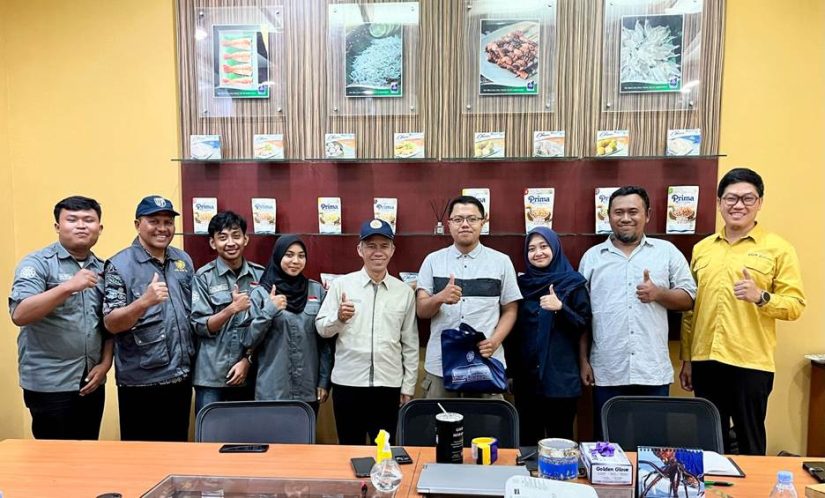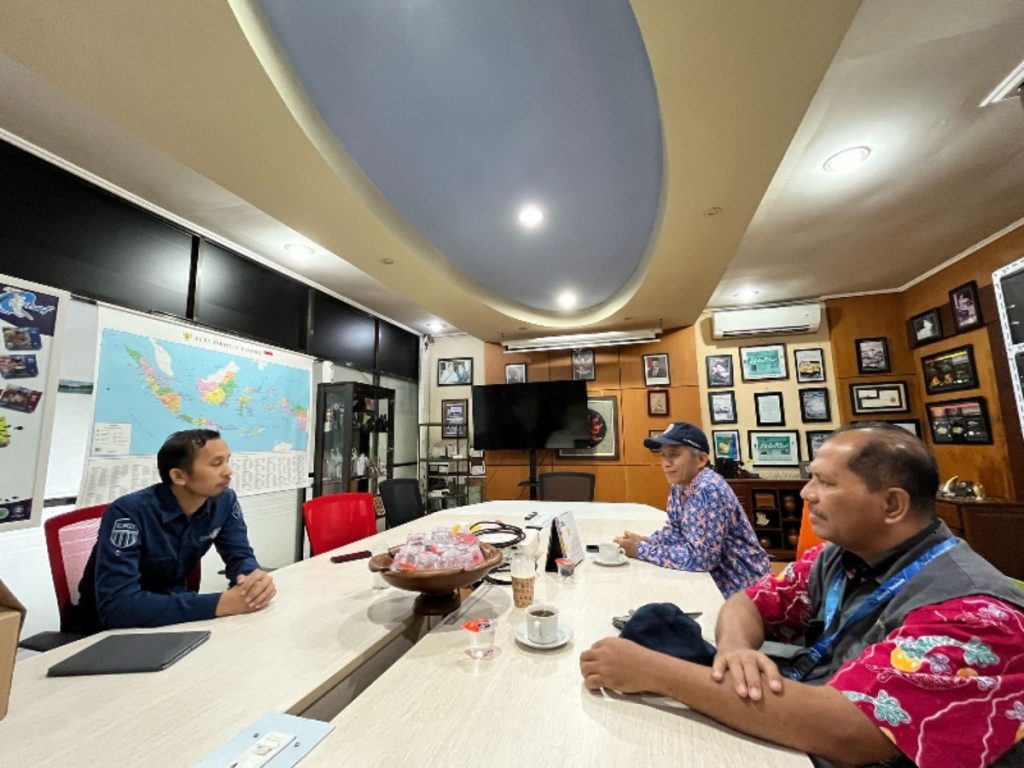
The Fish Processing Technology Study Program, Department of Fisheries, Faculty of Agriculture, Universitas Gadjah Mada (UGM), conducted a Monitoring and Evaluation (M&E) activity for the Merdeka Belajar Kampus Merdeka (MBKM) program on April 20–22, 2025. This activity involved visits to several industry partners, including PT. Insan Citra Prima Sejahtera (Tuban), PT. Pan Putra Samudra (Cirebon), CV. Bee Jay Seafood (Probolinggo), PT. Algaepark Indonesia Mandiri (Klaten), PT. Alga Bioteknologi Indonesia (Semarang), PT. Sarana Tani Pratama (Jembrana), PT. Blue Star Anugrah (Pemalang), PT. Istana Cipta Sembada (Banyuwangi), PT. Blue Ocean Food Indonesia (Banyuwangi), PT. Bahari Biru Nusantara (Lamongan), and the Fish Quarantine and Quality Control Station (Yogyakarta).

During the M&E visits, a team of faculty supervisors—Prof. Dr. Ir. Amir Husni, Dr. Latif Sahubawa, and Mgs. Muhammad Prima Putra, S.Pi., M.Sc, Ph.D.—met directly with students and on-site mentors at the internship locations. The visits involved in-depth discussions about the implementation of the MBKM program, including reporting progress, providing practical guidance, and evaluating the development of each student’s mini-project.

At PT. Bee Jay Seafood Probolinggo, students were encouraged to innovate by developing ready-to-eat products. Meanwhile, PT. Bahari Biru Nusantara Lamongan demonstrated full commitment to supporting internship evaluations. At PT. Insan Citra Prima Sejahtera Tuban, students were guided to create new products from fish processing waste—such as fish sauce—as part of their innovative projects.
This Monitoring and Evaluation activity is expected to enhance the quality of MBKM program implementation within the Department of Fisheries at UGM, while also strengthening collaborations with the industrial sector. Through consistent mentoring and supervision, students are expected to gain more profound, hands-on experience in industries relevant to their academic field. Additionally, this initiative supports several Sustainable Development Goals (SDGs), specifically: SDG 4: Quality Education, SDG 8: Decent Work and Economic Growth, SDG 9: Industry, Innovation, and Infrastructure, SDG 17: Partnerships for the Goals, focusing on empowering students to enter the workforce and encouraging sustainable innovation in the marine and fisheries sectors.
Author: Fathurrahman Kafi
Editor: Nahla Alfiatunnisa, S.Pi.
